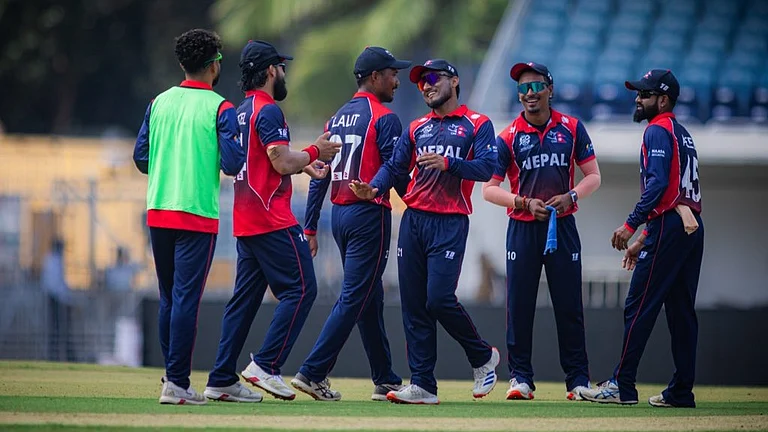When I hear or read the word democracy, my first reaction is to be on guard;to wonder if another confidence trick is being pulled over the country. Over thedecades, democracy has become a cover under which politicians, whom you wouldnot trust with a loan of Rs 10, gain authority to handle crores of public moneyor put pressure on those who do. To reach the commanding heights of politics,they must contest elections, which needs cash in suitcase-fulls. Criminals andtheir black money associates are happy to contribute, for a price. Society paysthe price, with corruption eating increasingly into its vitals. If progress ismade, it is in areas shielded from party politics. The true test of democracy,we were told in school, was that it should further "the greatest good ofthe greatest number." As practiced in India, the word has come to signifythe opposite.
Regular elections are supposed to be the acid test of democracy, filteringout the dirt from the system, replacing them with cleaner elements. But ourexperience has been the opposite. The need for huge amounts of money needed tobuy vote banks and retain enough for partners and followers has corrupted thesystem. More and more criminal elements are getting elected to legislatures orusing their clout to fix administrative and police appointments - thepolitician-bureaucrat-criminal nexus to which the N.N. Vohra committee reportdrew attention a decade ago. Each election breeds more corruption. The biggestvictims are the poor and under-privileged; most of the funds meant to improvetheir lot is siphoned away before it reaches them.
These are systemic defects, not aberrations, that admirers of the Westminstersystem of parliamentary democracy like Lord Meghnad Desai (who sits inWestminster) tend to underrate. In the book under review, he surveys the originsand history of India's embrace of the Westminster system since the Minto-Morleyreforms of 1909. The process was gradual, the doses mesmerised India'spaper-thin creamy layer of westernised elite into believing that it was the bestof all possible systems of governance. Yet there were reasons for doubt. TheWestminster model originated and developed over time in an island nation afraction of India's size. And Britain did not have such a deeply fissuredsociety, with a multiplicity of castes, sub-castes, communities, languages anddialects that were prone to be converted into vote banks by rival parties. Norwere most of its voters illiterate and poverty-stricken, as in India. In fact,it was takings from its Indian Empire that helped develop Britain, while furtherimpoverishing the poor in the subcontinent. .
The Westminster model held out the prospect of securing control of thesupreme executive power of government by a battle for power between rivalpolitical parties. Traditional institutions of direct democracy, like panchayats,were dismissed as archaic. Their role in getting people to work together playedno part in the process. Democracy was equated with a competitive no-holdsstruggle for centralised power in which the majority captured control of allagencies of government. Desai recognises these deficiencies but treats them aswarts on a healthy system.
In British India, the divisive, power-oriented politics ingrained in theWestminster model promoted the creation of Pakistan. Jinnah played on Muslimfears that as a permanent minority they could never hope to occupy the seats ofpower in an undivided India. He did not realise that Westminster would also helpto splinter the Hindu community in the struggle for power. That was to come. Adifferent, less divisive, model of governance, with guaranteed representationfor minorities in government, may have changed history.
Meghnad Desai is no admirer of Gandhi, who differed from his colleagues inrecognising the incompatibility of the British model to Indian conditions.He isunhappy with his fasts because they exerted influence outside the rulesprescribed by Westminster, forgetting that they were an effective correctivebecause they were backed by the democratic sanction of mass public opinion. Heis dismissive of Gandhi's alternative vision of village republics in which powerwould devolve downwards.
I do not find any mention of Jayaprakash Narayan in Desai's essay. Gandhi'slife was cut short just as he began to spell out his alternative to theWestminster model adopted uncritically by independent India. JP elaborated onhis vision. The functions of the village republics are laid out in A Plea forReconstruction of the Indian Polity, 1959, together with their role innon-party elections to and formation of State and Union governments. Thoughwritten in the early years of Independence, JP provided a deeper insight intothe future than Desai does today. An extract:
Experience has shown that present-day mass elections, manipulated by powerful, centrally-controlled parties, with the aid of high finance and diabolically clever methods and super media of communication, represent far less the electorate than the forces and interests behind the parties and their propaganda machines.
I am not qualified to assess Aitzaz Ahsan's contribution on Pakistan to Dividedby Democracy, but can safely assert that the Westminster model has notpromoted national integration and development anywhere in the subcontinent.
An edited version of this appears in the print magazine.


























